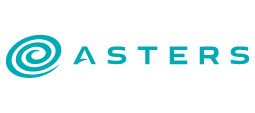Following the implementation of the first stage of the Competition Law reform, the Antimonopoly Committee of Ukraine (AMC) unveiled a new Draft Law on 24 July 2024, marking the second stage of the reform. This draft aims to further align Ukrainian competition legislation with EU standards and refine certain previous changes.
The AMC is inviting comments on the Draft Law until the end of August 2024. After this consultation period, the document will be submitted to Parliament for a vote, with the AMC expecting the changes to take effect in 2025.
The main proposals of the reform are summarized below:
1. Cooperation with the EU Commission and the NCAs. The Draft Law clarifies the rules governing the AMC's exchanging information with the EU Commission and the NCAs during merger reviews, investigations, and other activities.
2. Anticompetitive agreements
- Abolishing the notification system for concerted practices. Currently, the Competition Law requires that arrangements not covered by any of the block exemptions adopted by the AMC be individually notified and cleared (similar to the regime that existed in the EU before 2004). The Draft Law abolishes this notification system, replacing it with self-assessment. If parties determine that the arrangement is not anticompetitive and proceed with its implementation, but the AMC later investigates the arrangement, the burden of proving the absence of a negative impact on competition lies with the parties.
- General prohibition and voidness. The Competition Law prohibits anticompetitive concerted practices, but does not automatically declare them void. The Draft Law addresses this by stipulating that the relevant arrangements are automatically void.
- De minimis.The changes incorporate the EU's de minimis concept into the Competition Law, stipulating that the prohibition of anticompetitive concerted practices does not apply when such practices have no appreciable impact on competition. The AMC is tasked with defining detailed criteria for applying this concept. However, concerted practices "by object" cannot benefit from the de minimis
3. Abuse of dominance. The Draft Law clarifies definitions for certain types of abuses of dominance. Specifically, it states that only cases of applying dissimilar conditions to equivalent transactions, which place the counterparties at a competitive disadvantage, may violate the law. Additionally, it clarifies that creating obstacles to market entry or exit may not constitute a violation if they result from competition. The Draft Law also clarifies the procedure for courts to find arrangements resulting from the abuse of dominance invalid.
4. The reform introduces a number of new definitions, such as "upstream market", "downstream market", "economic activity", and incorporates the concept of restrictions by object/effect. Also, some existing definitions are revised, including "undertaking".
5. Superior bargaining position. New concepts of "superior bargaining position" and "abuse of superior bargaining position" are introduced. An entity is considered to have a "superior bargaining position" over another entity if the latter is dependent on it. The existence of a "superior bargaining position" is assessed using various quantitative and qualitative criteria. Unlike abuse of dominance, a "superior bargaining position" does not require the entity to hold a dominant position in any market. In particular, an "abuse of superior bargaining position" occurs when an entity imposes terms on the dependent entity that the latter would not accept absent the economic dependence. The Draft Law provides examples of such abusive conduct and envisages a sanction of up to 5% of the entity's global turnover.
6. The changes empower the AMC to summon representatives of an undertaking or any individual possessing relevant information for an investigation to attend an interview.
7. Interim measures. Under the Competition Law, the AMC can issue a preliminary decision with interim measures, such as prohibiting certain actions, during the review of a case upon request from a third party. The Draft Law proposes to expand the AMC's authority to issue such injunctions on its own initiative and clarifies the procedure for doing so.
8. Remedies and commitments. The reform clarifies the procedure for the AMC to impose behavioral and structural remedies in its decisions to address and end infringements. Additionally, the Draft Law allows parties to voluntarily propose commitments during the review of an infringement case to remedy their violations. These commitments can include behavioral or structural remedies deemed necessary by the parties to halt the violation and address its causes and consequences. If the commitments address the AMC's concerns, the authority can make them binding and close the case without formally finding a violation or imposing fines. However, offering commitments is not permitted for anticompetitive concerted practices "by object."
9. Periodic penalty payments. Under the Draft Law, the AMC may impose periodic penalty payments of up to 5% of an undertaking's average daily turnover to address continuing non-compliance with its decisions/requests (such as failure to comply with remedies, omission to provide the AMC with the requested information). This penalty can accrue for each day the relevant non-compliance lasts.
10. Succession of liability. It is clarified that if a fine cannot be collected due to the liquidation or reorganization of a legal entity, or the cessation of its income-generating activities, the fine may be imposed on its legal or economic successors. This refers to entities that have acquired assets from the infringer that are used for business activities.
A more detailed overview of the changes will follow once the Draft Law is voted by the Parliament.
By Pavlo Verbolyuk and Sergiy Glushchenko, Counsels, Asters


